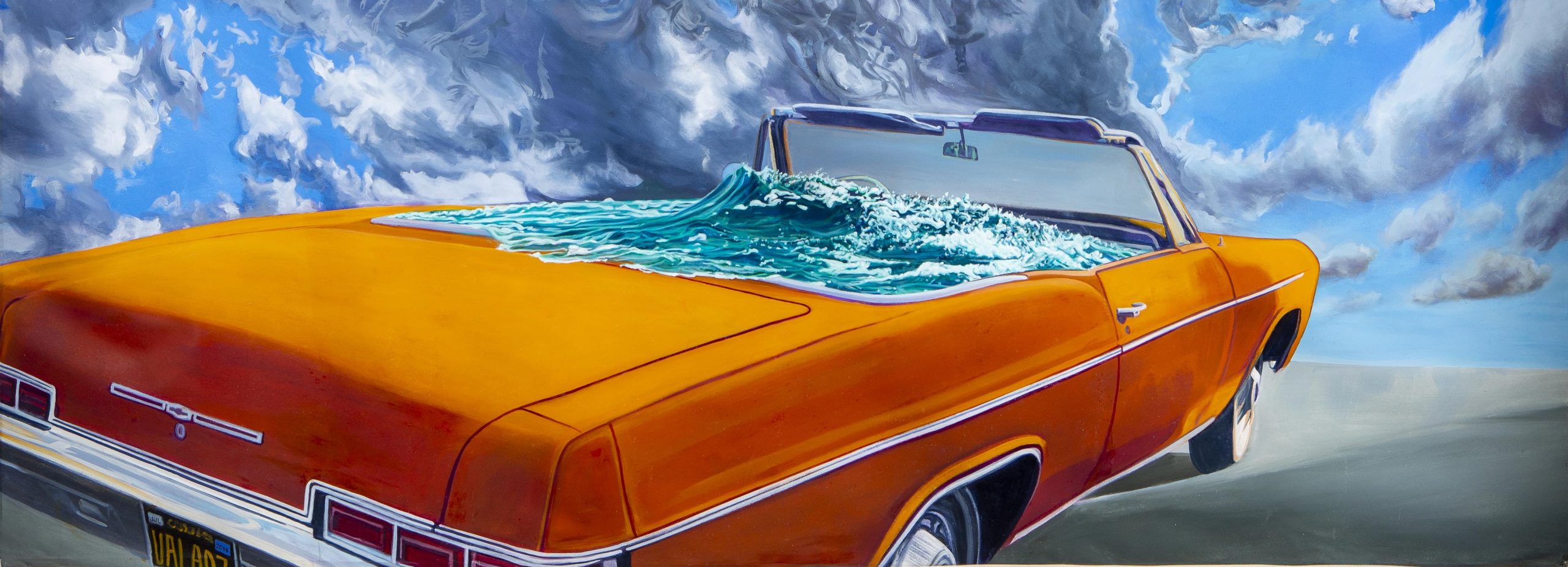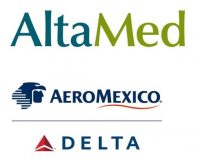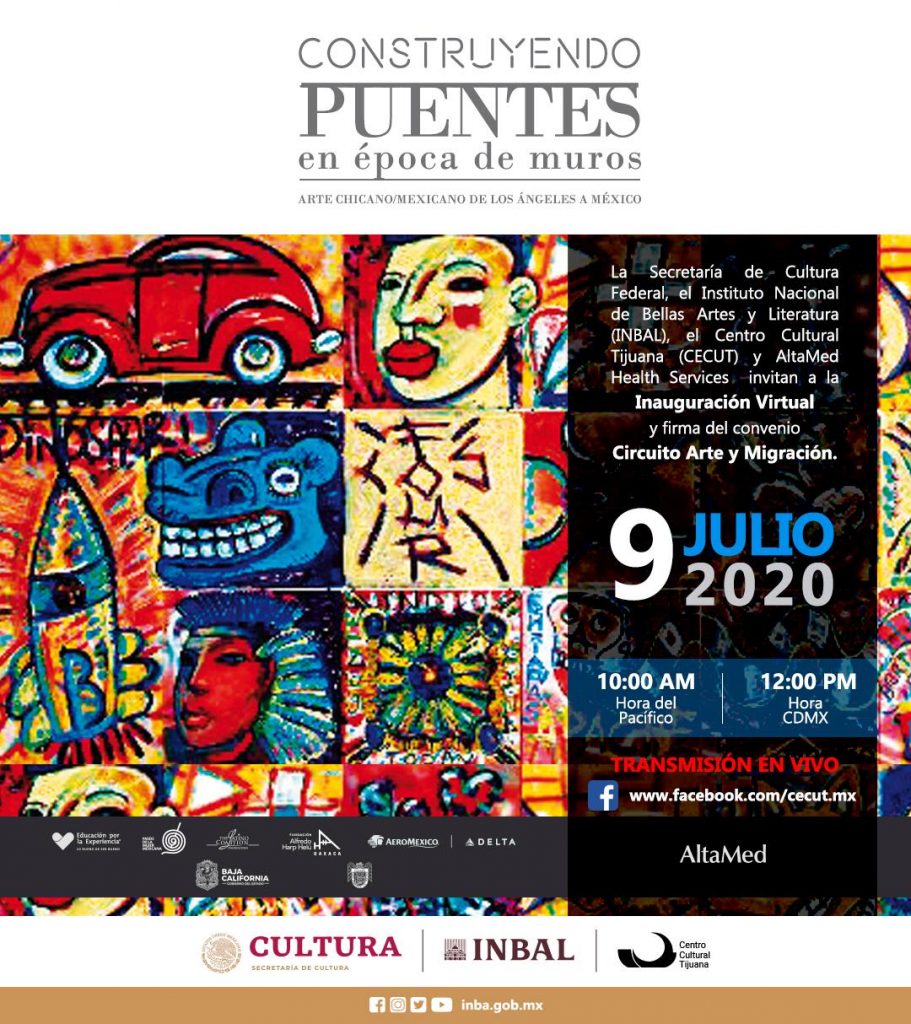
Chicano art began in the 1960s as the collective grito ―scream― of this aroused population to confront the majority Anglo culture. Latino soldiers were dying in disproportionate numbers in Vietnam. Latino fieldworkers were struggling with terrible work conditions and ridiculously low wages in the vegetable fields of California’s Central Valley. Meanwhile, in the barrios, law enforcement had stepped up arrests of ice-cream street vendors and young Chicano motorists accused of illegally “cruising” ― re-imagined in Frank Romero’s The Closing of Whittier Boulevard. The movement artist avatars were aroused by the systemic injustice pointed directly at the barrio’s inhabitants. Their concerns were voiced by this engaged and growing cadre of supremely talented young individuals who put their artwork first as murals on the walls of their communities, then in publications and museums, and ultimately before a startled American public. They were practicing what Italian philosopher Umberto Eco called “semiotic guerrilla warfare”.
Decade after decade, these artists continue to rise up and empower others to effect change. They are determined to be recognized and accepted. They are Chicano and Latino artist who have evolved mightily since the 1970s. As their theory, skills, and ideals have developed, critics have both berated and congratulated them for moving on from message making to the ideals of fine art.
These are the Rebel Diamonds from the Sun, forged by the intense pressures of injustice and marginalization only to emerge bright hot and nigh unbreakable, as their creative expressions and processes expand, deepen and mature.
Julian Bermudez
Guest Curator
Building Bridges in Time of Walls is an unprecedented collaboration between AltaMed Health Services and the Instituto Nacional de Bellas Artes y Literatura. In partnership with Mexico’s Secretary of Culture, Alejandra Frausto Guerrero and the director of the Instituto de Bellas Artes y Literatura, Lucina Jiménez, Building Bridges is presented by Cástulo de la Rocha, President and CEO of AltaMed Health Services; and Zoila D. Escobar, President, AltaMed Foundation.
AltaMed Health Services serves Latino, multi-ethnic, and underserved communities in Southern California, and as part of its holistic approach to healthcare, exhibits its art collection throughout all its clinics and service sites, whose subjects reflect the diverse communities it serves.
To learn more about the AltaMed Art Collection, click here
Exhibition partners

Presented by


SPECIAL EVENTS
Virtual Inauguration with Centro Cultural Tijuana (CECUT)
THURSDAY, JUL 9, 2020 8:00 AM
AltaMed Foundation
2040 Camfield Avenue, Los Angeles, CA 90040
[email protected] | (323) 914-6101
All contributions are tax deductible to the extent allowed by law. Our Tax ID number is: 95-2810095.
© 2025 AltaMed Foundation – All Rights Reserved

